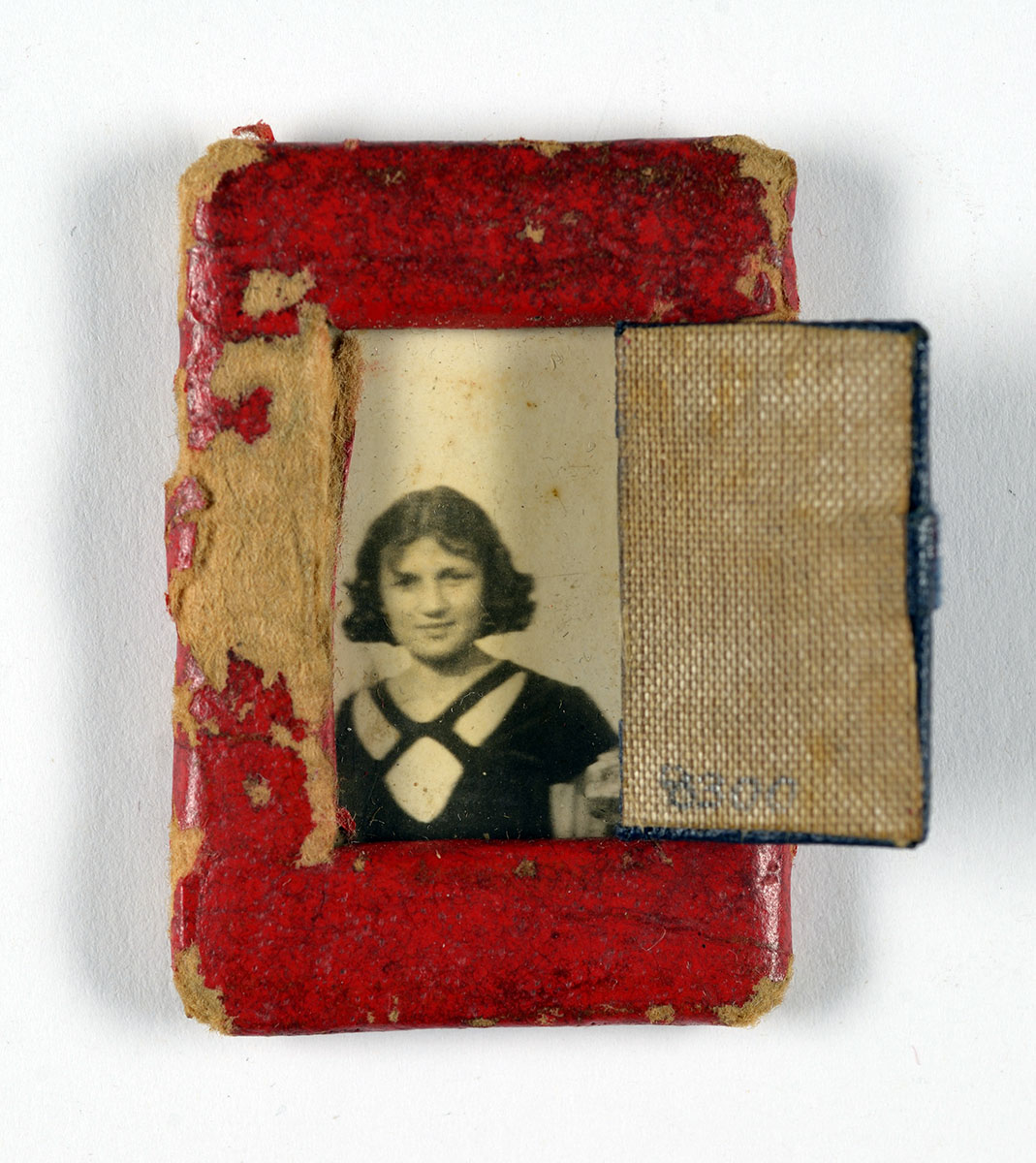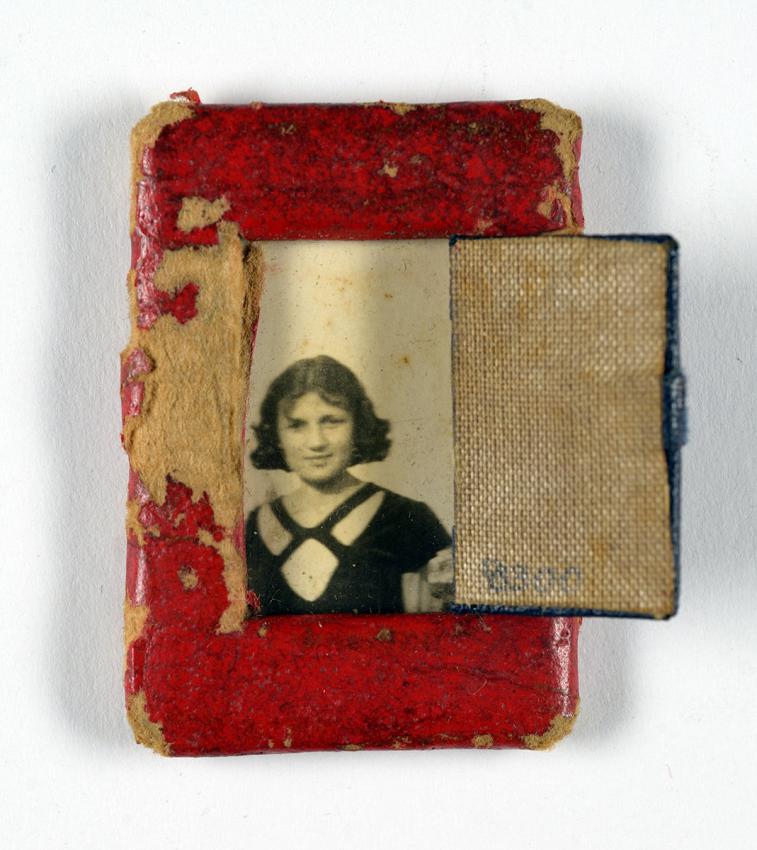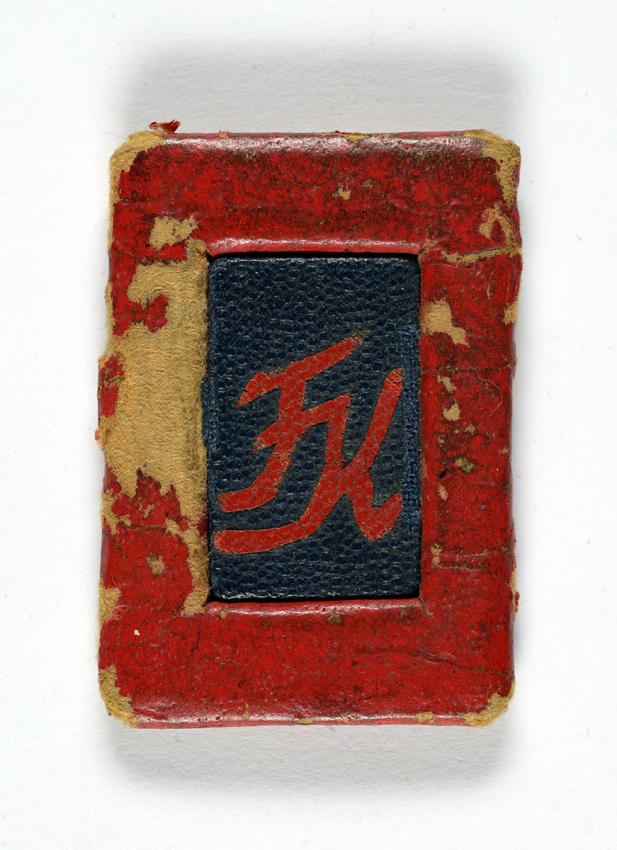In 1942 Gershon Henoch and Frania Kessel, together with their three-year-old daughter, Sara, and other members of the family were deported to the Piotrków ghetto where "Aktions"- brutal Nazi round-ups of Jews, starvation and disease were part of daily life. Despite the harsh conditions and the struggle to survive during this period, Gershon Henoch managed to make a pendant to give to his wife as a present. The pendant was crafted as a book with a photograph of Frania inside, and was decorated with her initials.
Close to the liquidation of the ghetto, the family was separated, and its members deported to different concentration camps. Gershon Henoch was deported to Buchenwald, while Frania and little Sara were deported to Ravensbrück where they were housed in a block for women and children. Their clothes and personal possessions were not taken from them, but a large X was painted on the back of their shirts as an alternative to the wearing of prison uniforms.
Later Sarah and Frania were transferred to the Bergen-Belsen camp. In the general chaos that reigned in the disease-ridden camp, mother and daughter waited to die together with thousands of other prisoners. Tragically, Frania Kessel died three weeks after the camp was liberated, and six-year-old Sarah was left alone armed with her mother's possessions: a shirt painted with a large X and the pendant that had been made for Frania.
Sarah was eventually reunited with her grandmother and discovered that her father had also survived, and the three immigrated to Israel.
Yad Vashem Artifacts Collection
Donated by Sara (Kessel) Shenfeld, Tel-Aviv, Israel




